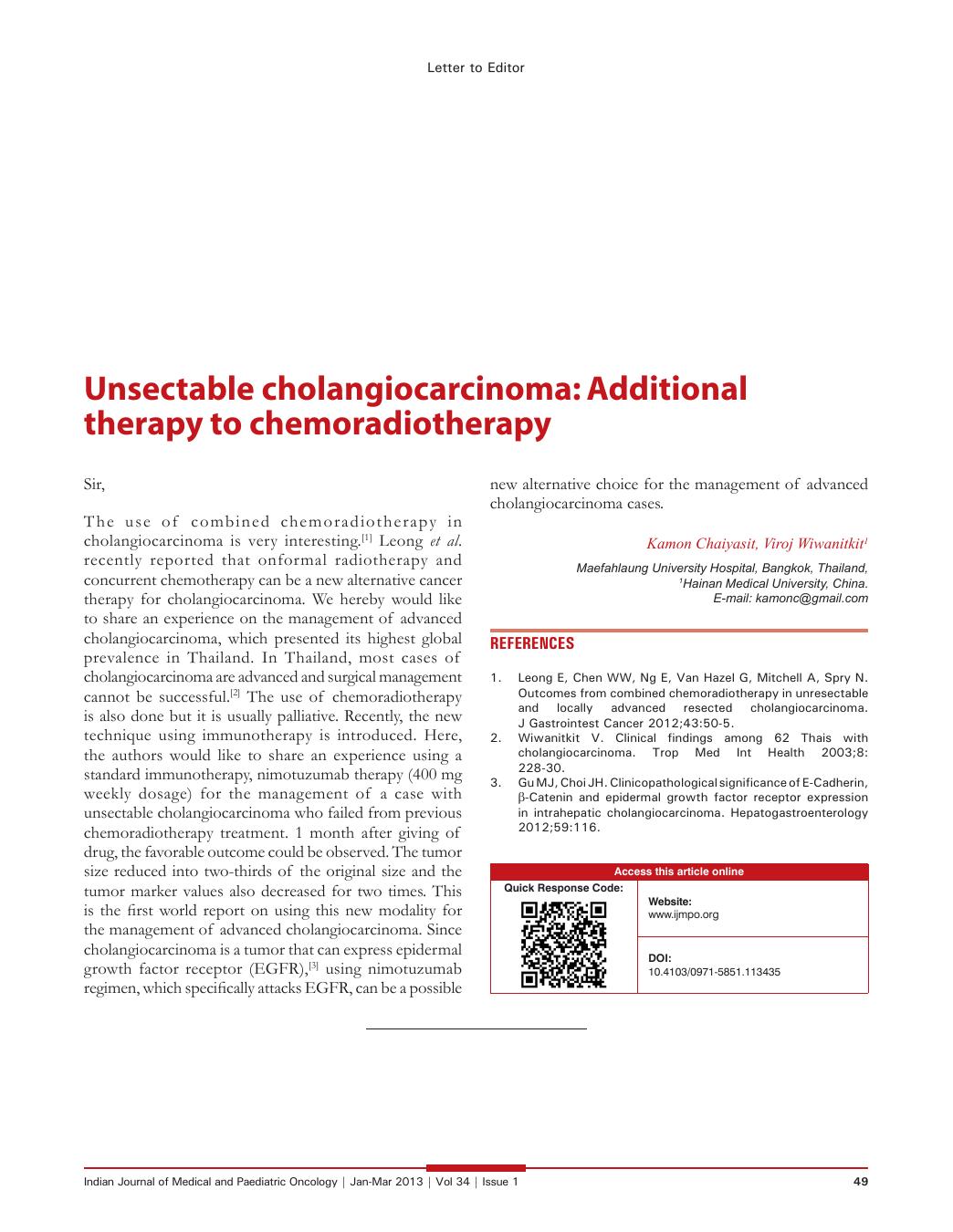Unsectable cholangiocarcinoma: Additional therapy to chemoradiotherapy
CC BY-NC-ND 4.0 · Indian J Med Paediatr Oncol 2013; 34(01): 49
DOI: DOI: 10.4103/0971-5851.113435

Publication History
Article published online:
20 July 2021
© 2013. Indian Society of Medical and Paediatric Oncology. This is an open access article published by Thieme under the terms of the Creative Commons Attribution-NonDerivative-NonCommercial-License, permitting copying and reproduction so long as the original work is given appropriate credit. Contents may not be used for commercial purposes, or adapted, remixed, transformed or built upon. (https://creativecommons.org/licenses/by-nc-nd/4.0/.)
Thieme Medical and Scientific Publishers Pvt. Ltd.
A-12, 2nd Floor, Sector 2, Noida-201301 UP, India
Sir,
The use of combined chemoradiotherapy in cholangiocarcinoma is very interesting.[1] Leong et al. recently reported that onformal radiotherapy and concurrent chemotherapy can be a new alternative cancer therapy for cholangiocarcinoma. We hereby would like to share an experience on the management of advanced cholangiocarcinoma, which presented its highest global prevalence in Thailand. In Thailand, most cases of cholangiocarcinoma are advanced and surgical management cannot be successful.[2] The use of chemoradiotherapy is also done but it is usually palliative. Recently, the new technique using immunotherapy is introduced. Here, the authors would like to share an experience using a standard immunotherapy, nimotuzumab therapy (400 mg weekly dosage) for the management of a case with unsectable cholangiocarcinoma who failed from previous chemoradiotherapy treatment. 1 month after giving of drug, the favorable outcome could be observed. The tumor size reduced into two-thirds of the original size and the tumor marker values also decreased for two times. This is the first world report on using this new modality for the management of advanced cholangiocarcinoma. Since cholangiocarcinoma is a tumor that can express epidermal growth factor receptor (EGFR),[3] using nimotuzumab regimen, which specifically attacks EGFR, can be a possible new alternative choice for the management of advanced cholangiocarcinoma cases.


 PDF
PDF  Views
Views  Share
Share

